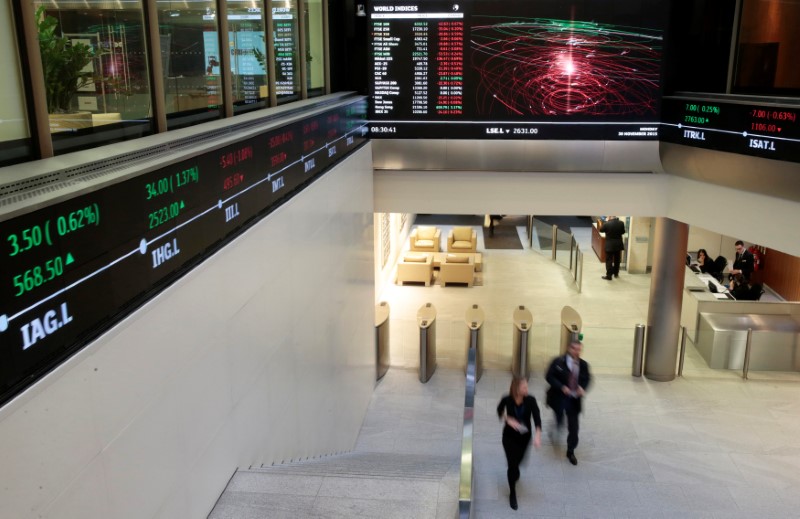By Helen Reid
LONDON (Reuters) - Britain's leading share index suffered its worst day in four months on Thursday as weak housebuilders dragged along with companies going ex-dividend.
Britain's FTSE 100 (FTSE) dropped 1.4 percent, underperforming major European benchmarks that bounced back from sharp losses in the previous session, when political concerns focussed on North Korea dented investor sentiment.
Results came back into focus on Thursday, but some positive updates were outweighed by the impact of several large companies' shares losing their dividend entitlement, helping the index to its worst daily losses since mid-April.
There were some silver linings. Drinks bottler Coca Cola HBC (L:CCH) jumped 9.2 percent after a first-half update.
"CCH delivered another solid operating performance, with better than expected volumes, revenues and margins driving a 14 percent beat versus consensus earnings," said analysts at Credit Suisse (SIX:CSGN).
Housebuilders Persimmon (L:PSN), Taylor Wimpey (L:TW) and Barratt Development (L:BDEV) fell 2.8 to 3 percent after data showed house prices grew at their weakest pace in over four years last month.
"Given Brexit uncertainties, the housing market is clearly a key risk for the UK economy," said Davy Research analysts.
"UK house prices are being protected by an illiquid market, but we have revised down our forecast for UK mortgage lending given weak transactional activity in 2017."
Worldpay Group (L:WPG) jumped higher with the U.S. market opening, ending 4.9 percent higher as investors piled in after U.S. payments firm Vantiv clinched a $10 billion deal to buy the company on Wednesday.
The stock's gains sent it up to 407.5p, rising above Vantiv's offer price which valued it at 397p per share.
While heavyweight miners Rio Tinto (L:RIO) and Anglo American (L:AAL) fell as they went ex-dividend, Glencore (LON:GLEN) dipped 2.5 percent after its results which analysts said lagged expectations.
"Glencore's first half P&L (profit and loss) numbers were a little disappointing, albeit significantly improved over the first half of 2016," analysts at Shore Capital said, forecasting improved financials in the second half of 2017.
Stocks going ex-dividend, also including BT (L:BT), Royal Dutch Shell (L:RDSa), BP (L:BP), Lloyds (L:LLOY), and pharma companies GSK (L:GSK) and AstraZeneca (L:AZN), took around 41 points off the index.
On the mid-cap front, food retailer Greggs (L:GRG) jumped 5.1 percent after an upgrade from Berenberg, whose analysts said the company has the potential to expand its store estate substantially and deal with a challenging UK consumer environment and cost pressures.
"Greggs is a stock that's often thought about by UK portfolio managers," said Ned Holland, mid-cap analyst at Berenberg.
"This is one company that could do better if consumer incomes come under pressure; that's certainly an argument that people on the buy-side put forward."
Overall British mid-caps (FTMC) and small-caps (FTSC) have performed relatively better this year as the pound strengthened relative to the dollar.

The FTSE 100 generally benefits from a weaker pound as many of its constituents earn in dollars.